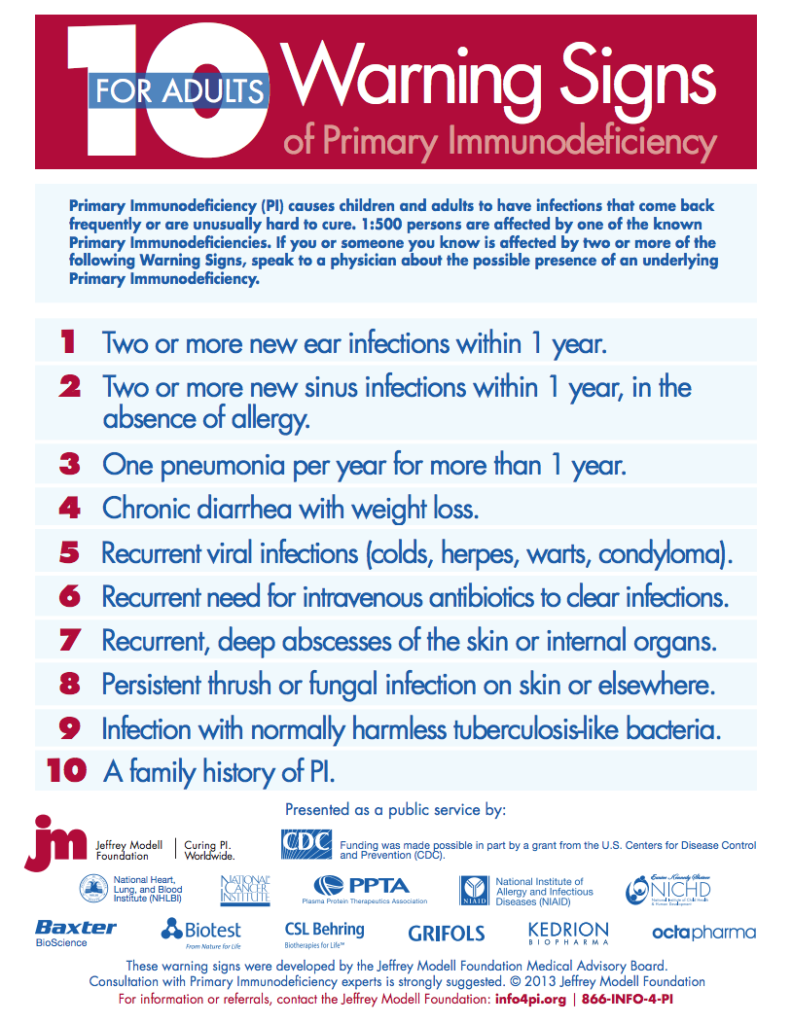What is Primary Immunodeficiency?
Primary Immunodeficiencies are a group of more than 300 disorders of the immune system with varying degrees of severity. They occur when one or more essential parts of the immune system do not work correctly.
People with PI cannot get rid of pathogens or protect themselves from these pathogens as well as they should, causing frequent infections and other problems that are hard to cure. Infections may appear to be common illnesses such as sinus and ear infections, pneumonia, fever, common colds, and bronchitis.
Why Getting Help Is Important
Today patients with PI are able to gain and maintain control of their lives with treatment and intervention:
- They are able to participate in work, school, family, and social activities.
- They have fewer and less severe infections.
- They feel good about their treatment programs and, most importantly, themselves.
Failure to diagnose PI can lead to an increased number and severity of infections, frequent interruptions in work, school, family, and social activities, and a lifetime of serious illness, including permanent organ damage. There are many treatment options that can help patients diagnosed with PI lead healthier lives.
10 Warning Signs of PI
“These warning signs were developed by the Jeffrey Modell Foundation Medical Advisory Board. Consultation with Primary Immunodeficiency experts is strongly suggested. ©2013 Jeffrey Modell Foundation”.


